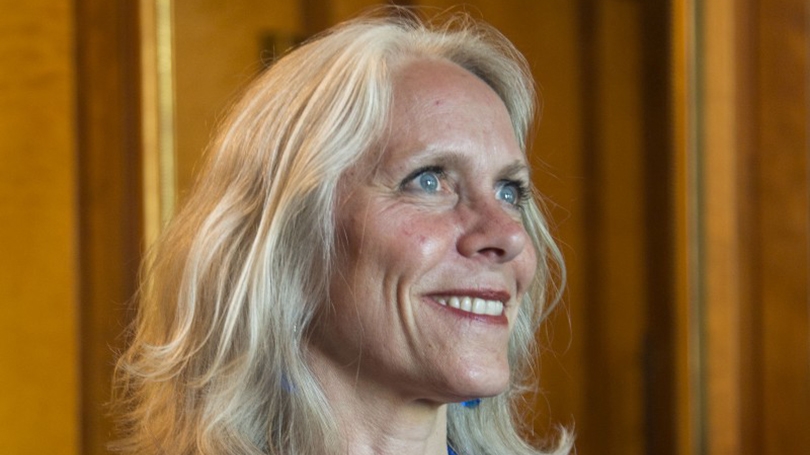
Ochs is an advocate for the rights of people of ALL orientations and genders to live safely, openly and with full access and opportunity
Educator, speaker, and award-winning activist, Robyn Ochs visited Dartmouth on Thursday, September 29 for a discussion of a wide range of gender identity and diversity issues.
Ochs, who has taught courses on LGBT history and politics in the United States, the politics of sexual orientation, and the experiences of those who transgress the binary categories of gay/straight, masculine/feminine, black/white and male/female, opened the conversation by sharing her own story of discovery and evolution of identity.
Historically, the statistic for people identifying as something other than heterosexual is 10%. This number has been used throughout the gay rights movement and can be found in Kinsey’s research.
But the reality is that in high schools today that number is 11.2%, with 6% identifying as bisexual, 2% as lesbian or gay, and 3.2% as unsure. 30% of people 18 to 29 years old place themselves somewhere in the middle of a sexuality continuum or spectrum, rather than at either binary extreme of gay or straight.
Ochs, who says her sexual identity was formed at a time “BG” (Before Google), believes that these changing numbers are due to better awareness and access to resources and is interested in providing access for individuals who identify as something other than heterosexual.
As the editor of Bi Women Quarterly; the anthology, Getting Bi: Voices of Bisexuals Around the World; and the new anthology RECOGNIZE: The Voices of Bisexual Men, Ochs hopes to share diverse stories of experience and the concept of intersectionality.
A term grounded in black feminist thought, Ochs defined intersectionality as the many different categories of identity each individual has and the lived experience of being all of those things, all of the time, and inseparably. Sharing experiences requires a need for many stories – many voices – in order to do justice to the full range of lived contexts each person holds.
Attendees took turns reading excerpts from the anthology Getting Bi and then partaking in conversation about the context of each voice shared; how timing, location, gender, cultural, religious, and political background, etc. shape how sexuality and gender are experienced. Stories from China, Saudi Arabia, Pakistan, Zimbabwe, Sri Lanka, and the USA were all shared.
The privilege of finding a space where one is able to identify as they wish divides many parts of the world. The opportunity to break any societal or cultural expectation is a privilege. The opportunity to have an identity of fluidity, to live outside of the binaries and default societal assumptions, is an even greater privilege.
Robyn Ochs closed the event with a message of activism by stating that it is a political act to come out as non-binary, to stand up for that which is never assumed.
Robyn Ochs was invited to Dartmouth by the Master of Arts in Liberal Studies Program (MALS) and co-sponsored by the English Department; Women’s, Gender, and Sexuality Studies; the Leslie Center for the Humanities; and African and African American Studies.